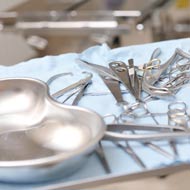Why do we make mistakes?

There is the potential for staff to thrive or survive after a mistake is made.
In human medicine, it is widely accepted that doctors are nurses are the ‘second victims’ when they make a mistake that harms a patient, and the same is true of veterinary professionals.
Speaking at SPVS/VMG Congress, Catherine Oxtoby said medics involved in patient safety investigations report very similar symptoms to vets and nurses. Signs include extreme sadness, difficulty concentrating, depression, repetitive or intrusive memories, sleep disturbance and avoidance of similar types of patient care.
When a mistake is made, the impact on the professional involved can be devastating and long-lasting. Among vets and nurses, evidence suggests there is a fear of being blamed by the RCVS, clients, colleagues and senior staff. In addition, we blame ourselves for falling short of our own exceptionally high standards.
So is there a culture of blame in the veterinary profession? As humans, Catherine said, it is our knee-jerk reaction to blame those who make mistakes, or to believe we could have performed better. Outcome bias also means we are pre-programmed to be critical when we know the outcome is bad.
However, to some extent, mistakes are inevitable due to our cognitive limitations. When we are hungry, angry, late or tired (HALT), we are going to make mistakes. Rather than ‘soldiering on’, we need to put systems in place to mitigate human limitations. Assigning blame or saying “try to be more careful next time” is counter-productive and will not prevent errors.
The aviation industry has made significant progress in improving safety. A study in 2006 (Sexton) found that only 26 per cent of pilots felt they could perform as well when tired, compared to 70 per cent of vets. Just over half (53 per cent) per cent said they were able to leave problems at home while working, compared to 83 per cent of vets; and only seven per cent said juniors should not question the decisions of senior staff, compared to 45 per cent of vets.
Coffee giant Starbucks uses closed loop communication to prevent errors - asking customers to confirm their order and writing their name on the cup. Catherine said the profession could learn from this, as research shows 40 per cent of all errors in theatre are down to a breakdown in communication between team members.
There is the potential for staff to thrive or survive after a mistake is made. If they receive the proper support, they can learn from their mistakes and become better clinicians; if not, it could lead to long-term suffering and loss of confidence.
Barriers to seeking help among doctors are lack of time, lack of confidence, not knowing who to go to, fear of being seen as ‘weak’ or believing their problems are ‘not important’. Catherine said practices must design systems to make it easy to find help, including an approachable figure to talk to. It is essential to be aware of biases and human factors, and to assess the situation objectively to find out what went wrong.
In the words of one clinician who spoke to Catherine about a patient safety issue she was involved with; believe in yourself, do the best you can, don’t carry the weight of the world on your shoulders, learn and move on.



 The veterinary mental health charity Vetlife is inviting the veterinary community to join it for a sponsored cold-water dip.
The veterinary mental health charity Vetlife is inviting the veterinary community to join it for a sponsored cold-water dip.